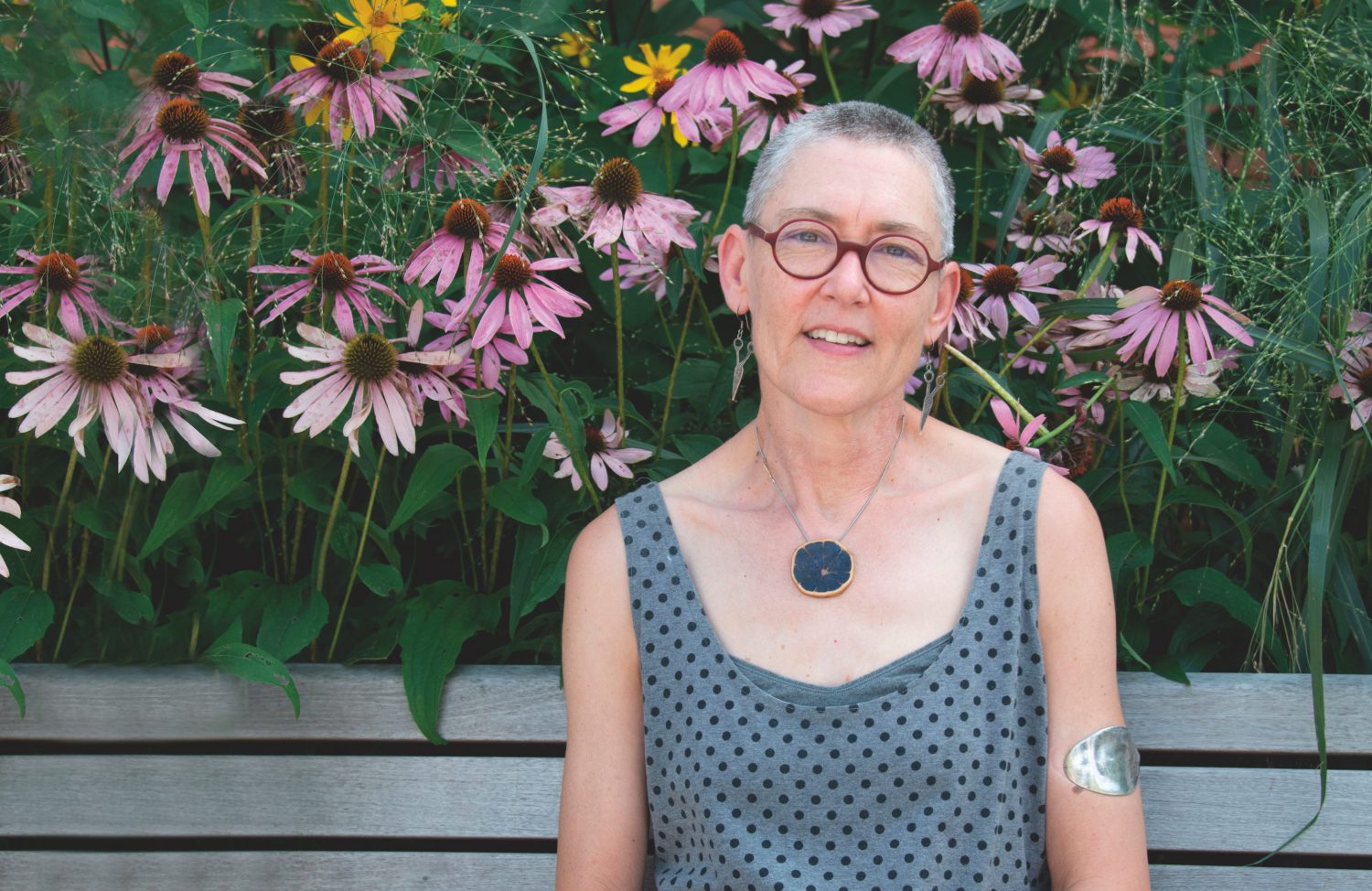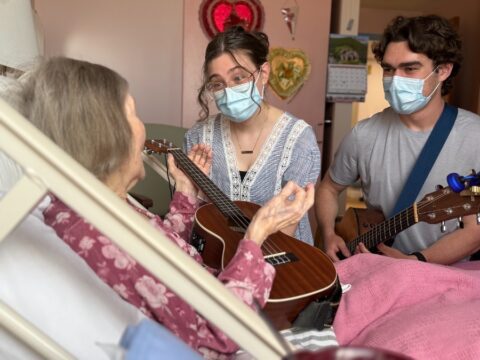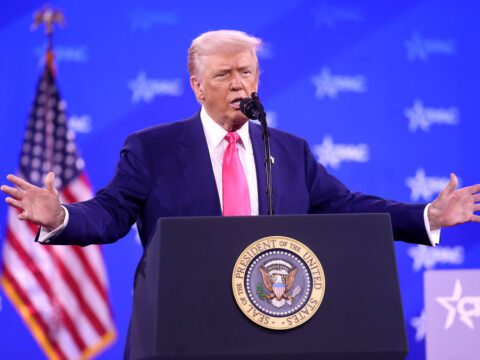Lorraine Johnson is an environmentalist, passionate gardener and activist. In 2002, she released her seminal work, The Gardener’s Manifesto. This call to action has inspired a generation of gardeners to embrace their work with an ecological and social purpose. She writes: “I believe that we garden to participate in the planet, and through this, change the world and be changed by it.”
Native plants are species that have evolved in a specific area for thousands of years and have developed a web of relationships with the wildlife that are part of their habitat. Johnson sees native-plant gardening as a way to positively respond to both the climate and biodiversity crises. When Christopher White first met her for this interview, she was cleaning native seeds for fall planting.
Christopher White: What do you see as the purpose of a garden?
Lorraine Johnson: A garden is a conversation with the planet. My goal is to create a connection with the plants and creatures that live there. I want to create habitat for the birds, the bees and all the pollinators; a garden should be filled with life. This is part of the reciprocity between the garden and the gardener — the garden is fundamentally about the relationships we build. I also see part of its purpose is to create beauty. I love the beauty of growth; for me there is beauty in all growing things. But we need to have a much wider understanding of an aesthetic of beauty.
CW: Where did our current garden aesthetic come from?
LJ: It comes from a sense that we need to control nature. The monoculture of the lawn is all about “taming” the wilderness; it is about a colonial relationship to the earth; it is a visceral reaction to any sense of wildness. It is 500 years of entrenched colonial violence and injustice. There is enormous social pressure to conform and get rid of anything that is seen as disordered. In some quarters, the new aesthetic that is emerging is seen as a huge threat. It’s all about feeling out of control and experiencing it as a danger, because at its core what is beginning to happen is dissent from the dominant power, and that creates powerful reactions.
More on Broadview:
- Videos show stunning impact of thawing permafrost
- Sask. Green Party leader: province is ‘perfect place’ for clean energy shift
- 5 things you’ll find in this birder’s tool kit
CW: So what’s wrong with having lawns — don’t they produce oxygen and have ecological value?
LJ: It’s not as if I am saying you can’t have some lawn. But let’s look at the issues around lawns: the enormous amount of water they consume and what yard after yard of a monoculture does to local wildlife. I really think we can do better than this. All we are asking is that people work with the earth and the plants that have been here for millennia.
CW: I have a native-plant garden in my front yard. I know that when my patch of goldenrod comes into bloom, I see people looking at it with concern.
LJ: What I find frustrating is that people feel entitled to police other forms of gardens they find offensive, and it’s always framed around the perceived economic value of a property. Habitat gardens are of enormous ecological value. They create health and abundance while supporting all forms of life. Should we not be talking about that “property value”?
We are all on land that was stolen. Why would anyone think that they are entitled to not do something of ecological value with this land?
CW: Then how do we reframe the issue?
LJ: We need to ask the larger question of what exactly we mean by property value. That construct comes out of an arbitrary number that is agreed upon within our culture. But there is no intrinsic value in the number itself.
If we frame the issue of property value by asking the question “What is the ecological value of a property?” — that actually has a tangible value. We could ask: What life does this property support? What is its connection to nature? These are the larger questions that need to be part of the conversation.
CW: How do we engage people in a deeper and wider conversation about the importance of habitat gardens?
LJ: I am convinced that we are in the midst of a culture shift right now, but it’s not happening fast enough when we are in the midst of a biodiversity crisis and a climate crisis. But the positive news is that we are already seeing the impact of these conversations. Twenty-five years ago, you would rarely see front-yard gardens in Toronto. Now we see them everywhere, and more people are growing food on these small pieces of land. People actually see them as adding value to their homes. For me, it’s about starting with honouring everyone and recognizing that people are in different places. We don’t want to say to anyone that they don’t matter. The place to start is with the importance of biodiversity, which is becoming more recognized as critical to all our futures.
CW: You also believe in growing food locally. Why is that important?
LJ: It’s quite an experience to nurture a plant that will in turn nurture you, and it’s another way to connect with the earth. But not everyone has access to land to grow food. As a society, we need to look at this through the lens of equity and access. The people who are food insecure are the very people who need this land. Food Share Toronto and the University of Toronto released a study showing that people of colour and Indigenous people disproportionately suffer from food insecurity.
Do we really need to use 150 acres of public land for a golf course when it could be used for food production? Shouldn’t we have public greenhouses and greenhouses in our schools? If we make food production visible on public land, then it would open up a whole new conversation.
CW: You’re a big fan of backyard chickens. Why?
LJ: First, we need to be clear that we are talking about backyard hens — no roosters! So the real question is why not? Kids love them, they are the perfect domesticated urban companion animals and there is nothing more nutritious than a fresh egg. We can address every potential concern and benefit everyone. So why wouldn’t we want to do this?
CW: What are the next steps for the native-plant or habitat gardening movement?
LJ: We have done a very good job at making the ecological connections. We now need to move into issues around social justice and reconciliation. It is time to continue dialogue with First Nations and engage in hard and complex conversations on reconciliation, which are the only way that transformation actually happens.
CW: So you are seeing a more activist role for us as gardeners?
LJ: Yes, we need to build solidarity and alliances with issues beyond ecology. We need to support those whose habitat gardens have been challenged at the municipal level as being filled with “weeds,” and work to change the understanding of the purpose of gardens.
We should be asking ourselves questions: Is there equitable access to habitat gardens, and can we get free native plants to those on the margins of our society? How can we make it a priority to create fabulous spaces of healing and nature for those who are dispossessed from this?
CW: In a time of climate change and habitat loss around the world, where do you see hope?
LJ: All life is hopeful. I just have to look at the light streaming through an oak tree to feel hope.
There has been a lot of movement and change over the past few years, as well as a growing awareness around these issues. For me, at a human and ecological level, we are not okay unless everyone is okay, and we are working toward that.
This interview has been edited and condensed for length and clarity. It first appeared in Broadview’s March 2021 issue with the title “The radical gardener.”
***
















We are all on land that was stolen. Who is the “we”? If yours was stolen, I suggest you give it back as soon as possible.
God blessed me with the land I have and has entrusted me to look after it as I see fit. (just as He allows you to do the same).
What a silly comment. Your land was originally stolen from Native Americans, just like mine was. Why do Christians have this need to conquer and subdue anything that challenges your imagined superiority?
Is it possible to have a link to this article in full?
Lorraine’s presentation and slide show to the Parkdale Hort was an outstanding and compelling history of colonialism in Canada.
https://www.parkdaletorontohort.com/news/2019/11/6/lorraine-johnson-unsettling-the-garden.html This was such a moving presentation accompanied by evocative slides! The Parkdale gardeners loved her and her presentation. Many questions; great interest in Indigenous questions.
Love this article and it’s encouraging words to give back, sustain, and honor the earth.
Having said that I want to know… why not “Roosters” ? How will we get more back yard chickens? 🙂
How about quiet roosters?